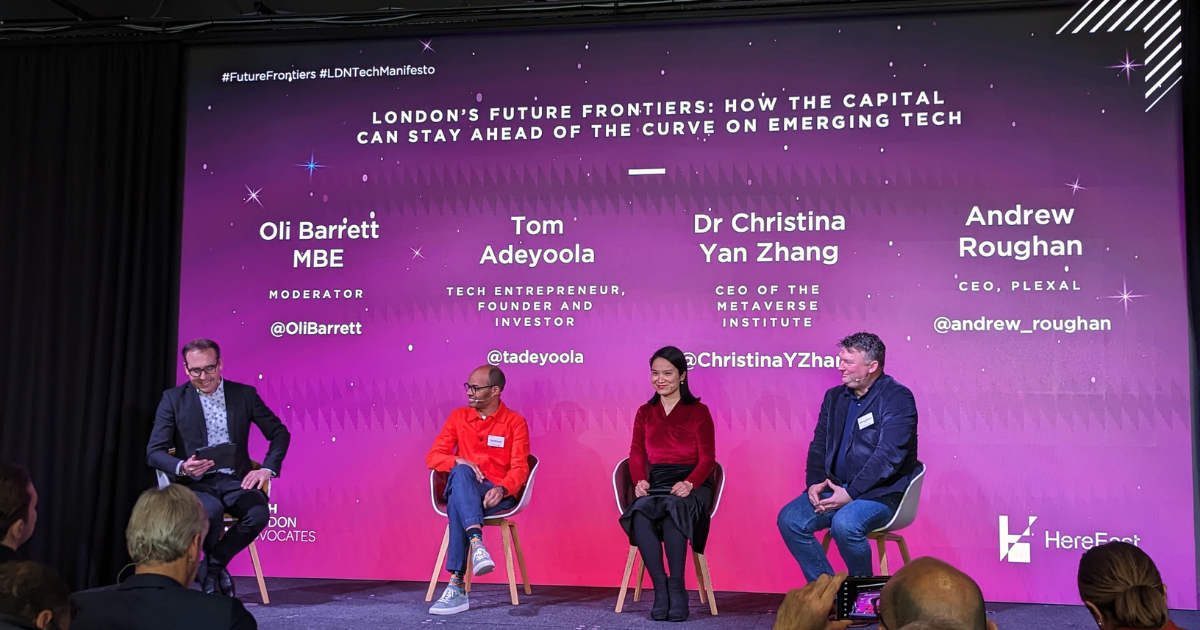Global cities face many of the same challenges, from air pollution and population growth to increasing levels of inactivity and a city that is accessible to all. Rather than tackling each in a silo, there’s a growing awareness that’s what’s needed is a dose of open innovation that treats problems in a more coordinated way. In London, our Mayor wants us to be the world’s smartest city and his Smarter London Together roadmap lays out a vision for improved collaboration between academics, government, corporates and the tech community to encourage ideas to germinate, scale and spread. For this to happen, larger organisations need to find ways of making their processes more conducive to innovation. And Plexal is excited to be partnering with Transport for London’s (TfL) to trial a method that will do exactly that.
London RoadLab is a 10-week programme aimed at sourcing new tech solutions that haven’t been tested in a roadworks environment to reduce the disruption they cause. The impact of roadworks on a busy street can range from congestion and pollution to making it harder for pedestrians, bus users, cyclists, the elderly and people in a wheelchair to use their preferred route. We’re looking for companies that have solutions they think could be applied to roadworks to apply. In return, we’ll give them funding, advice, guidance on using TfL data and access to real-world pilot sites dotted around the capital.
A new way to innovate
One of the most exciting things about London RoadLab is that for the first time, TfL is stating what the problem is, but isn’t defining the solution – it’s letting the innovators do that.
It’s using a new innovation partnership procedure that will make it easier for innovative solutions to be tested in real-world environments. “London RoadLab is a totally new way for TfL to engage with our supply chain in a less prescriptive way,” says Rikesh Shah, Head of Commercial Innovation at TfL and member of the Mayor’s Smart London Board. “We’re identifying routes to market that make it easier for the best solutions to be put to use. We want good products to put on our streets.”
Better together
There’s a humility associated with open innovation: large organisations like TfL recognise that they alone don’t have all the answers to environmental, health, inclusivity and productivity challenges that extend far beyond transport. “We’re very good at a lot of things but we’re not the best at everything,” Rikesh adds. “Because we have such big ambitions and complex challenges in an ever-expanding London, we need to working together as part of a wider ecosystem. We think the innovation community can help us, and we want to make working with us easier by addressing some the typical barriers they face.”
That’s not to say being open comes easy, though. TfL is recognised around the world for being an exemplar when it comes to sharing data with over 14,000 developers. Open innovation more broadly is the natural next step for the transport body. “There are limited examples of genuine open innovation in the corporate world, perhaps because it can be uncomfortable for some people to not know exactly what the outcome of a programme will look like,” says Rikesh. “It’s a big culture shift for any organisation. But having seen what our open data approach has achieved we think it’s important to try to access solutions from the best innovators in London and beyond.”
That’s where Plexal comes in. We’re facilitating the collaboration between TfL and the innovators out there by helping to identify the right partners and making sure the programme’s outputs solve problems in the real world.
Our programme will launch in 2019, and the lessons we learn can be applied not just in a roadworks environment but across large organisations, local councils and public-sector bodies throughout Europe. “London has a chance to act as a living lab for experimentation,” Rikesh concludes. “If it’s a success, we can show the world what open innovation can achieve and help lots of people unlock solutions that make people’s lives better. This is going to be an exciting journey.”
Applications for London RoadLab are now open. Read all about the challenges and find out how to apply at plexal.com/London-RoadLab


